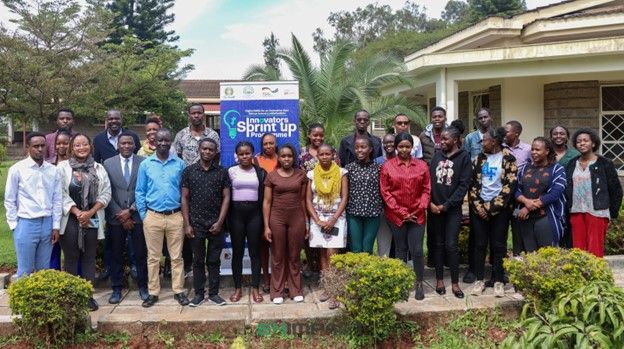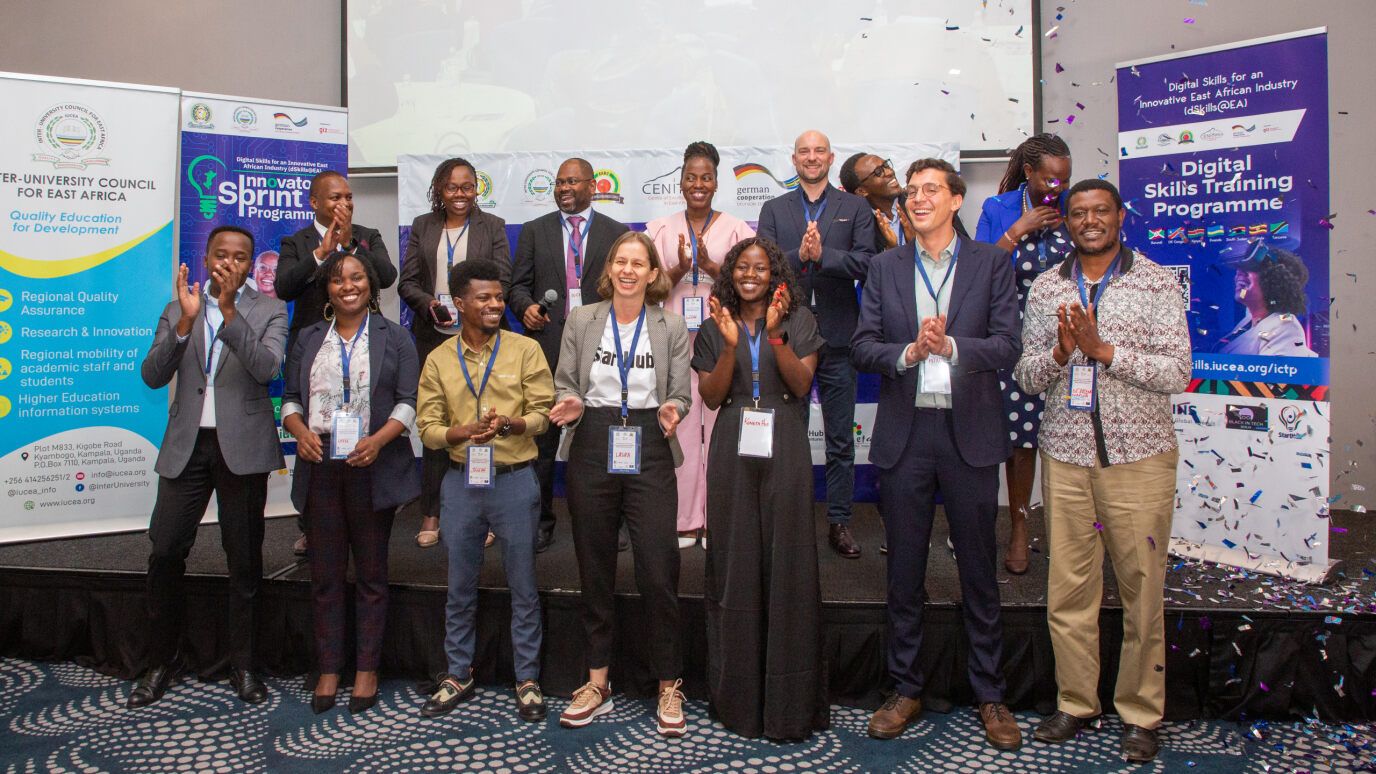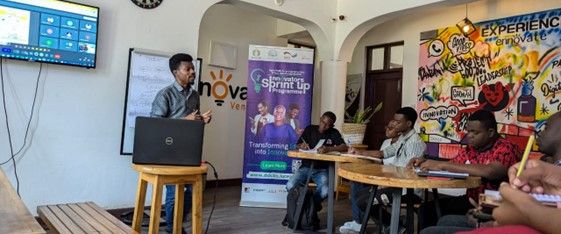The EAC Digital Skills for an Innovative East Africa (dSkills@EA) project, in collaboration with GIZ and the Inter-University Council for East Africa (IUCEA), kicked off its capacity building programme on 25 June 2024. This initiative, funded by the German government, seeks to equip young innovators and aspiring entrepreneurs in the region with the tools and knowledge necessary to launch and scale their startups.
The Innovators Sprint Up Programme was initiated following a Training Needs Assessment that revealed a significant gap in business knowledge among participants. Only 22% of the participants had prior knowledge of business concepts, while the remaining 78% lacked the essential skills for entrepreneurial success. Based on these findings, the programme was designed to address the needs of the participants by offering modules such as Design Thinking, Business Model Canvas, Marketing, Financial Planning, and Investor Readiness.
This collaborative effort brought together EAC Partner States, including Burundi, the Democratic Republic of Congo, Kenya, Rwanda, South Sudan, Tanzania, and Uganda. Further, the initiative is supported by a consortium of Entrepreneur Support Organizations (ESOs), including E4Impact Foundation, Ennovate Ventures, Aclis, Koneta Hub, and Cinolu Hub, under the leadership of The Association of Startups and SME Enablers of Kenya (ASSEK).
"Digital skills are a cornerstone for driving economic growth and enhancing regional competitiveness within the East African Community. By fostering proficiency in digital tools and technologies, dSkills@EA is playing a pivotal role in transforming the economic and social fabric of East Africa," remarked David Roos, dSkills@EA project.
The programme focuses on several key training areas identified by young innovators. These include Business Modeling, Market Research, Financial Planning, Marketing and Customer Acquisition, Access to Funding, and Mentorship. The following modules have been crucial in shaping the participants' entrepreneurial journeys:
1. Design Thinking
Design Thinking is a foundational module in the programme, particularly for early-stage innovators. Many participants initially struggled to understand their users’ needs. This module taught them to empathise with their target customers, developing solutions that are tailored to real-world challenges. Sankale Olkiado, Founder of LaGrange, noted, "For the last two days, I have gained a lot in Design Thinking. It is a very impactful module that has helped me streamline my startup in such a profound way."
2. Business Model Canvas (BMC)
Understanding how to structure a viable business model is crucial for any startup's success. This module helped participants redesign and refine their business models to ensure financial stability and scalability. "Following the BMC training, I had to make a tonne of changes and rethink the idea I formerly presented and come up with something more workable," said Charles Rubangakene, a participant.
3. Marketing
Effective marketing is essential for reaching customers and promoting a business. Participants learnt how to position their businesses, create compelling value propositions, and communicate effectively with their target audiences. “The Marketing Module has made me visualise my business from a more detailed perspective,” noted Derick Kainan Omona.
Furthermore, the Innovators Sprint Up Programme has reached over 300 young innovators in East Africa. These entrepreneurs have participated in intensive boot camps where they refined their business ideas and prototypes. The programme serves as a catalyst for job creation, entrepreneurship, and innovation, contributing to the region's economic growth and development.
By August 2024, the programme had successfully hosted four industry mentorship sessions, offering young innovators the opportunity to deepen their knowledge and gain practical tools for business success. These sessions covered topics like branding, sales, leadership management, and intellectual property, providing participants with a well-rounded entrepreneurial skill set.
"This has been a very powerful and impactful session. Growth indeed is a seed-cutting process," remarked Moses Kazimoto, President of the University of Dar es Salaam.
The Impact of the Programme
The programme has had a profound impact on the lives and careers of many young innovators. Nalule Grace Nakabuye from Rwanda, for example, has significantly elevated her business, Apollo’s Irembo, thanks to the knowledge and skills she acquired through the programme. Similarly, many other participants have expressed their gratitude for the opportunity to learn and grow.
One participant, Kimonyi Esther Nthenya from Nairobi, Kenya, shared her experience: "I joined dSkills@EA with zero know-how of what entrepreneurship entails. The Innovators Sprint Up Programme has helped bring to life a startup entrepreneur who is now fully equipped with entrepreneurship knowledge and skills."
Participants in the program gained advanced business skills through modules like Sales and Negotiation, Financial Accounting, Commercialisation, and Intellectual Property Protection. These modules equipped them to maximise profits, manage finances, bring innovations to market, and protect their ideas.
The dSkills@EA Innovators Sprint Up Programme is playing a crucial role in empowering the next generation of East African entrepreneurs. By equipping young innovators with the skills and knowledge necessary to launch and grow their businesses, the programme is driving job creation, fostering innovation, and contributing to the region's overall economic development. The collaboration between the EAC, GIZ, IUCEA, and other partners ensures that the impact of this programme will be felt across the East African region for years to come.
Find more information about the dSkills@EA Innovators Sprint Up Programme here. Find more information on the dSkills@EA project here.


